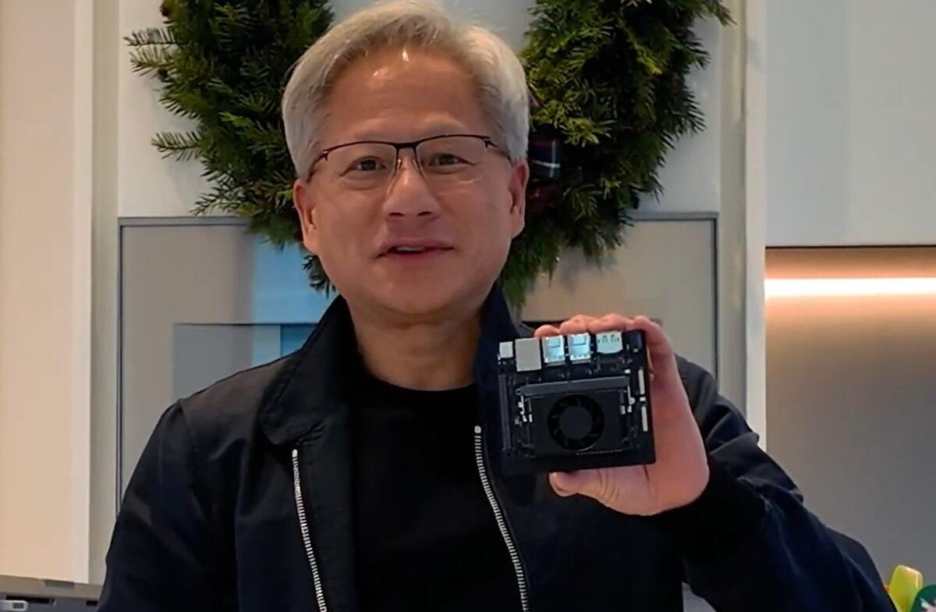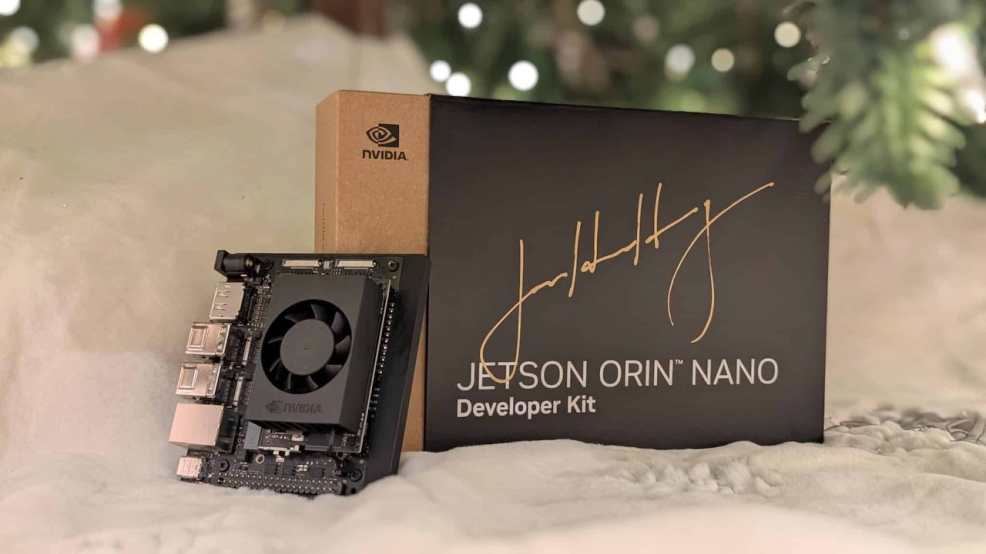NVIDIA launches Jetson Orin Nano Super for robotics and AI: Capable of 70 trillion operations per second for just $249

NVIDIA on Tuesday unveiled the Jetson Orin Nano Super, a compact AI and robotics processor that delivers impressive performance in a small package. Dubbed “the world’s most affordable generative AI computer,” the processor has the ability to handle 70 trillion operations per second (TOPS), and operates on just 25 watts of power. It’s priced at just $249, making advanced AI development more accessible than ever before.
The 70 trillion operations per second is a performance metric typically seen in supercomputers or large-scale data centers. For comparison, some of the fastest supercomputers in the world operate at similar levels. Take the Summit supercomputer, which held the title of the world’s fastest in 2018. It peaked at 200 petaflops, roughly equal to 60 trillion operations per second.
A Processor Built for the Future
Years ago, NVIDIA entered the robotics space with the Xavier processor, a bold step into the unknown. At the time, few realized its potential to shape AI and robotics. Today, the Jetson Orin Nano Super builds on that foundation, setting a new standard for performance and versatility. It’s ready to power everything from robotic platforms to edge AI devices.
Why the Jetson Orin Nano Super Stands Out
- Performance: Delivers 70 TOPS—a level of processing power typically seen in larger, more expensive systems.
- Efficiency: Runs at just 25 watts, making it ideal for energy-conscious and portable applications.
- Price: At $249, it opens the door for developers, students, and hobbyists to work on AI projects without breaking the bank.
Nvidia Jetson Orin Nano Super Developer Kit
The Nvidia Jetson Orin Nano Super Developer Kit includes:
- A Jetson Orin Nano 8GB system-on-module (SoM).
- A reference carrier board with support for up to four cameras for higher resolution and frame rates.
This combination is perfect for computer vision projects and edge AI development where real-time performance matters.

Ready for Today’s AI Models
The Jetson Orin Nano Super is fully compatible with popular generative AI models and transformer-based computer vision systems from leading platforms, including OpenAI, Google, Meta, Microsoft, and Hugging Face.
Existing Jetson Orin Nano Developer Kit users can unlock the same 1.7x generative AI performance boost through a simple software update. This upgrade extends to Jetson Orin NX and other Orin Nano systems, ensuring ongoing improvements.
Applications That Matter
With support for NVIDIA’s CUDA, CNN, and TensorRT, the Jetson Orin Nano Super is equipped to handle a variety of workloads, including:
- Robotics: Build AI-driven robots that can reason, plan, and interact in dynamic environments.
- Large Language Models: Run LLMs that typically require more powerful and expensive systems.
- Edge Computing: Process data in real-time for applications where speed and efficiency are critical.
Tools to Build Faster
NVIDIA provides a full suite of tools to simplify development, including:
- NVIDIA Isaac for robotics.
- NVIDIA Metropolis for computer vision AI.
- NVIDIA Holoscan for sensor processing.
- NVIDIA Omniverse Replicator for generating synthetic data.
- NVIDIA TAO Toolkit for fine-tuning AI models.
With additional support from the NVIDIA Jetson AI Lab and a vibrant developer community, you’ll have access to tutorials, open-source projects, and custom hardware or software solutions to help you build and scale faster.
AI Innovation That’s Affordable and Available Now
At $249, the Jetson Orin Nano Super delivers 70 trillion operations per second, combining affordability with serious performance. Whether you’re a student exploring AI, a hobbyist working on robotics, or a developer building edge applications, this platform makes advanced computing practical and accessible for real-world projects.
NVIDIA has made it easier than ever to create smarter, AI-driven systems without breaking the bank. The Jetson Orin Nano Super is available now—ready to power the next wave of robotics and AI innovation. Hitting 70 trillion operations per second is no small feat. It highlights just how far modern computing systems have come.




